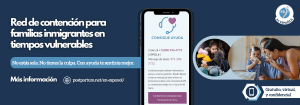Alyssa’s Story
At PSI, we understand that storytelling has the power to save lives, and we are honored to provide a space for survivors to share their stories. This article is part of a subsection of the PSI blog dedicated to survivor stories. Please note that this story has not been edited, and caution is advised as distressing themes related to perinatal mental health may be present. If there are specific trigger warnings for an article, they will be listed below. Links to resources can be found at the bottom of this page.
Trigger warning: intrusive thoughts, suicidal ideation, hallucinations, traumatic birth
Introduction
I came to work with the perinatal population because of my own experience and the desire to help birthing people like myself through those incredibly tough times. PSI helped me just today. I completed the PSI perinatal mood disorder training, and honestly, the guilt began to lift as I realized that so many people around me could have intervened. The fault is not all my own—if there is fault at all.
My First Pregnancy
I was diagnosed with bipolar disorder at 19 and put on medication. At 26, when I found out I was pregnant, I immediately stopped taking my mood stabilizer, antipsychotic, and antidepressant, fearing harm to my baby. I never went back to my psychiatrist. My mental health plummeted.
I tried to hold everything together—balancing school at NCSU and work—but I couldn’t manage. I lost my job after repeatedly yelling at customers, and I withdrew from school. Paranoia consumed me; I had vivid visions of people stabbing me in the stomach. My rage was uncontrollable—I couldn’t even drive. I was terrified of leaving my house and often sat in the tub, wanting everything to end.
Despite not seeing a psychiatrist, I attended frequent OB appointments due to my high-risk status. I told multiple OBs how I was feeling, but their focus remained on the baby. Looking back, I wish just one of them had been trauma-informed and offered help. In trying to protect my child from medication risks, I now realize I likely caused more harm by not being on them.
My Daughter’s Birth
My daughter was born on time but small, in the 1st-5th percentile for weight and height for years. She was later diagnosed with a rare GI disease, ADHD, and multiple learning disabilities. The guilt I feel, especially now as a trained clinician, is overwhelming.
Her birth was traumatic. After 20 hours of labor, I needed a C-section. My epidural failed during the procedure. In my birth videos, my husband holds and smiles at our daughter while my screams fill the background.
Postpartum Reflections
For the first six months of her life, I felt nothing. I changed her, swaddled her, placed her in a rocker, and turned the TV on while I slept for hours. That guilt lingers, even though I know—logically—it wasn’t my fault.
I had a second pregnancy that went absolutely beautifully after finding a perinatal psychiatrist who educated me and encouraged me to stay on my mood stabilizer.
I did not use support services when I was experiencing these things, though I wish I did. PSI has taught me so much, I cannot begin to thank Birdie, Tiffany, and Chris for their informative and engaging training. I am a much more competent clinician and am confident in working with the perinatal population.
If you could offer advice to another parent who is in need of help, what would you say?
You deserve to have a beautiful pregnancy and birthing journey. Use every resource you can to make that happen. When you prioritize your mental well-being, you serve not just yourself, but your children, and all the people around you who love and care about you.
Get Help
Learn More about Perinatal Mental Health Disorders
Free Online Peer Support Groups, including Perinatal Mood Support











